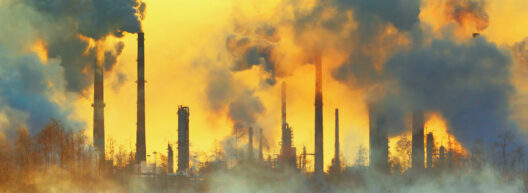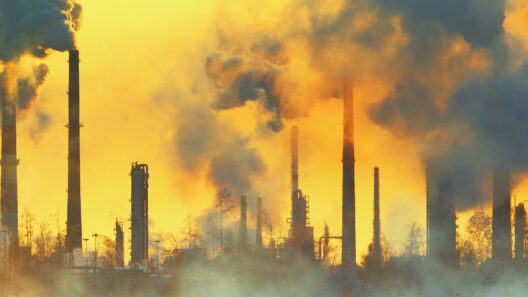The Earth is in peril, and yet a persistent question lingers in the air: Will anyone tell China? With its burgeoning economy and expanding industrial might, China’s role in the global climate crisis cannot be overstated. As the world’s largest emitter of greenhouse gases, China’s actions—or inactions—hold significant implications for global climate initiatives. Why, then, do discussions around climate responsibility often skirt around this leviathan? The global tug-of-war on climate responsibility presents a daunting challenge, one that necessitates urgent attention and collective action.
As the environmental ramifications of human activity escalate, nations worldwide grapple with the pressing need to curb their carbon footprints. The situation is increasingly complex, particularly when it comes to China. The nation has been a focal point of international criticism for its environmental policies, particularly concerning fossil fuel consumption and industrial emissions. However, this scrutiny often encounters layers of geopolitical intricacies. As global leaders convene in climate summits, there exists a palpable tension: how does one broach the subject of accountability with a power as formidable as China?
In recent years, discussions surrounding climate action have gathered momentum, and the question of equity and fairness in responsibility has emerged as a central theme. Developing nations argue that historically, industrialized countries bear the brunt of climate violations, suggesting that these nations should shoulder a more substantial portion of climate responsibility. On the other hand, China, as a rapidly industrializing nation, cites economic growth as a critical factor in its carbon emissions, raising questions about the balance between developmental aspirations and environmental stewardship.
Indeed, the chicken-and-egg scenario presents a paradox: Can countries like China genuinely prioritize climate change when their economies hinge on rapid industrialization? The challenge is accentuated by the reality that millions of citizens in China still live in poverty, making economic expansion a contentious priority. Any call to reduce emissions might be perceived as an impediment to progress, creating resistance from within. Should the world then tread lightly around this issue, or is more direct engagement necessary?
It is essential to contextualize China’s position within the broader narrative of global climate action. For decades, the nation’s development model—predicated on heavy manufacturing and energy-intensive industries—has fueled its ascent. This has undeniably placed it at the forefront of the climate debate. Yet, as the stakes rise, so too does the understanding of the consequential role that China can play in mitigating climate change. The latest initiatives, such as President Xi Jinping’s pledge for carbon neutrality by 2060, signal a willingness to engage with global climate discussions. However, the efficacy of these declarations remains to be seen.
Amidst this backdrop lies the potential for collaboration, albeit it wrought with tension. Notably, the U.S. and China agreed on climate steps to curb emissions during recent diplomatic exchanges. This cooperation starkly illustrates a paradigm shift, where adversarial relationships can evolve into partnership opportunities via shared environmental goals. Yet the question looms: What will it take to hold China accountable in these commitments? Is it merely a matter of negotiation, or is deeper systemic change required?
Furthermore, the issue of transparency becomes paramount. As global citizens advocate for accountability, there is a pressing need for empirical data to support claims of progress. This is particularly true when scrutinizing China’s environmental record, which is often clouded by lack of accessible information. The faith of the international community hinges upon an open dialogue, which can foster trust and mutual commitment. Adopting a multifaceted approach that includes non-governmental organizations, citizen advocacy, and intergovernmental agreements may facilitate a more transparent climate action framework.
Looking towards the future, several pivotal questions emerge. How can global leaders impress upon China the urgency of its climate responsibilities? One potential strategy could lie in economic incentives, where developed nations offer financial support for cleaner technologies in exchange for measurable emissions reductions. Such a partnership could cultivate innovation while alleviating some of the burdens associated with transitioning to a low-carbon economy. Moreover, sharing technological advancements and expertise could serve as a powerful motivator for China to enhance its environmental policies.
Ultimately, the discourse surrounding China’s role in global climate action necessitates a nuanced understanding of power dynamics, developmental implications, and environmental exigencies. No single nation can be entirely blamed or championed in isolation; rather, collective endeavors must weave through geopolitical landscapes and cultural intricacies. As we press forward, the plea remains: will anyone tell China? Perhaps it is time for a collective global whisper to crescendo into a rallying cry for accountability.
In conclusion, the tug-of-war on climate responsibility is emblematic of the complexities inherent in addressing climate change. The world stands at a crossroads, fraught with challenges yet brimming with possibilities. By fostering collaborative dialogues, harnessing economic incentives, and advocating for transparency, countries can forge pathways toward sustainable solutions. As we ponder the future, one might consider the interplay of responsibility and evolution, urging nations—China included—toward a more harmonious existence with our planet.




